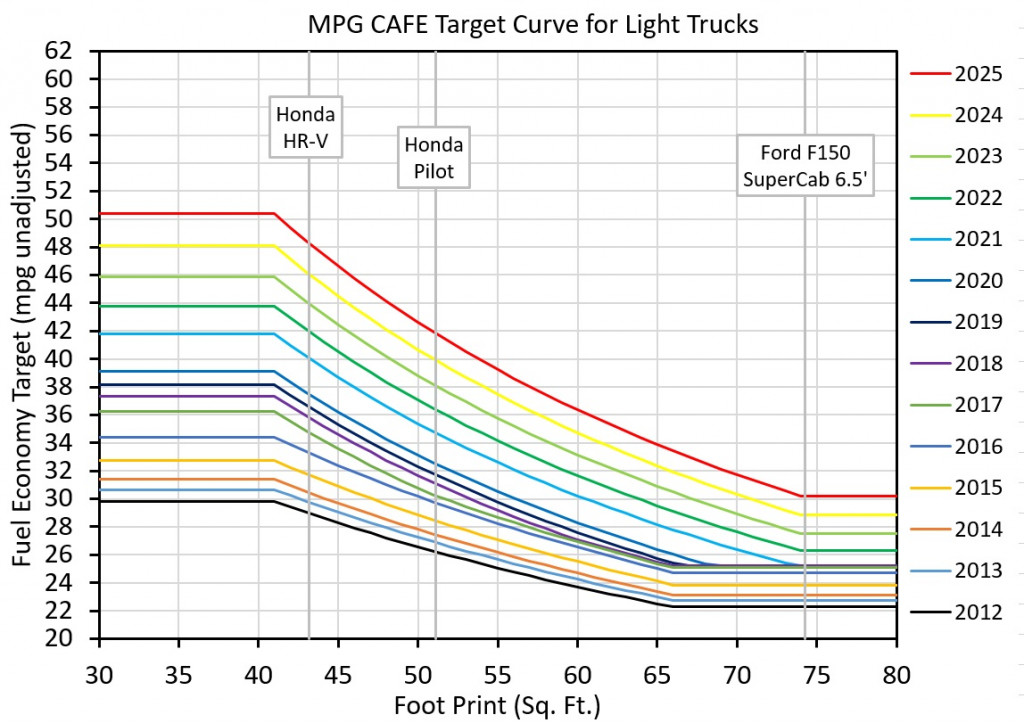Quote:
Originally Posted by Hersbird


Its 23 now but this shows 30 mpg by 2025. And that being average not what the best are doing. |
Yes, the graph shows 30 mpg but 30 = 23. Let me explain.
Your chart is from the NHTSA which administers CAFE. My chart is from EPA which is responsible for the MPG ratings on a new car window sticker. They do not use the same numbers.
NHTSA (and therefore CAFE) uses the
unadjusted number from lab results. This in no way matches the fuel economy that people see when they drive their car on the street. When the EPA starting printing window stickers they use the numbers from CAFE. People complained that cars didn't get anywhere near the rated fuel economy. So EPA tweaked their numbers buy running the CAFE numbers through an equation to get a more realistic number. It was still high and people still complained. This cycle has repeated over the past 4 decades so that today the combined fuel economy on the window sticker is about 25% lower than CAFE. So a full size truck rated at 30 mpg CAFE = 22.5 mpg EPA combined.
This is crazy confusing for the average person and it isn't helped that most journalists that cover the topic don't know the difference either. It really isn't helped when people that are opposed to CAFE purposely conflate the two numbers to mislead the public buy using EPA numbers to represent current fuel economy and then the CAFE number to represent what will be required in 2025.
When I talk about fuel economy I use EPA numbers.
While I'm here I'll also touch on your topic about the EPA cracking down on diesel. This will have little effect on CAFE. The reason is that diesels don't actually help CAFE that much. While the public talks about miles per gallon the standards are in grams of CO2 per mile (or KM, or HP-Hour, etc) It isn't the volume of fuel going into the tank that matters it is the weight of the carbon coming out of the exhaust. Burning a gallon of gasoline creates 8.8 kg of CO2. Burning a gallon of diesel creates 10.1 kg of CO2. A gallon of diesel produces 15% more CO2 than a gallon of gasoline because diesel is more energy dense than gasoline. When regulatory bodies around the world started regulating g/km of CO2 they took away the advantage that diesel cars have by burning more energy dense fuel.
I hope that helps clear up the confusion.